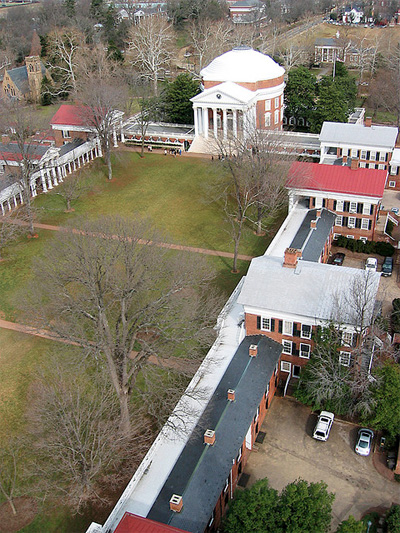The fundamental tenet of the THATCamp experience is the user-generated-ness (to coin a term) of the event itself. In other words, it’s up to you to propose the sessions, and this site is set up to help that happen. Phil Edwards has kicked us off already down below.
How does it happen?
Now that you’ve registered for THATCamp Virginia, we’ve make you a user account on this site. You should have received your login information by email. Before the THATCampVA, you should log in to the site, click on Posts –> Add New, then write and publish your session proposal. Your session proposal will appear on the front page of this site, and we’ll all be able to read and comment on it beforehand. (If you haven’t worked with WordPress before, see codex.wordpress.org/Writing_Posts for help.) The morning of the event, we’ll vote on those proposals (and probably come up with several new ones), and then all together we’ll work out how best to put those sessions into a schedule.
Here’s some guidance for you when considering a session idea to post.
In brief
Everyone who goes to a THATCamp should propose a session. Do not prepare a paper or presentation. Plan instead to have a conversation, to get some work done, or to have fun. Also remember, try to keep the posts brief–300 words or less should be enough to give your colleagues a sense of what you’re interested in talking about, without tiring out their eyeballs.
No papers, no presentations
An unconference, in Tom Scheinfeldt’s words, is fun, productive, and collegial, and at THATCamp, therefore, “[W]e’re not here to listen and be listened to. We’re here to work, to participate actively.[…] We’re here to get stuff done.” Listen further:
Everyone should feel equally free to participate and everyone should let everyone else feel equally free to participate. You are not students and professors, management and staff here at THATCamp. At most conferences, the game we play is one in which I, the speaker, try desperately to prove to you how smart I am, and you, the audience member, tries desperately in the question and answer period to show how stupid I am by comparison. Not here. At THATCamp we’re here to be supportive of one another as we all struggle with the challenges and opportunities of incorporating technology in our work, departments, disciplines, and humanist missions.
Session proposers are session facilitators
If you propose a session, you should be prepared to run it. If you propose a hacking session, you should have the germ of a project to work on; if you propose a workshop, you should be prepared to teach it; if you propose a discussion of the Digital Public Library of America, you should be prepared to summarize what that is, begin the discussion, keep it going, and end it. But don’t worry — with the possible exception of workshops you’ve offered to teach, THATCamp sessions don’t really need to be prepared for; in fact, we infinitely prefer that you don’t prepare.
At most, you should come with one or two questions, problems, or goals, and you should be prepared to spend the session working on and working out those one or two points informally with a group of people who (believe me) are not there to judge your performance. Even last-minute workshops can be terrifically useful for others if you know the tool or skill you’re teaching inside and out. As long as you take responsibility for running the session, that’s usually all that’s needed. Read about the Open Space Technology approach to organizing meetings for a longer discussion of why we don’t adopt or encourage more structured forms of facilitation.
Session genres
- General discussion— Sometimes people just want to get together and talk informally, with no agenda, about something they’re all interested in. Nothing wrong with that; it’s certainly a much better way of meeting people than addressing them from behind a podium. Propose a session on a topic that interests you, and if other people are interested, they’ll show up to talk about it with you.
- Jon Voss, Toward Linked Data in the Humanities, Great Lakes THATCamp 2010.
- Nick Mirzoeff, An actual digital revolution?, THATCamp Prime 2009
- Jeffrey McClurken, Archiving Social Media Conversations of Significant Events, THATCamp Prime 2009 (this session was combined with Nick Mirzoeff’s, above)
- Eli Pousson, How do we share our knowledge of historic places?, THATCamp Columbus 2010
- Frédéric Clavert and Véronique Ginouvès, Les archives orales et le web (Oral testimonies and the web), THATCamp Paris 2010
- Zach Whalen, ARGS, Archives, and Digital Scholarship, THATCamp 2010
- Hacking session— Several coders gather in a room to work on a particular project. These should usually take more than an hour or even two; if you propose such a session, you might want to ask that one room or swing space be dedicated to it for the entire day.
- Writing session— A group of people get together to start writing something. Writing can be collaborative or parallel: everyone can work together (probably in Google Docs) or by themselves (yet with a writing vibe filling the air) to write an article, a manifesto, a book, a blog post, a plan, or what you will.
- Working session — You’re working on something, and you suspect that some of the various people who come to THATCamp might be able to help you with it. You describe problems you want solved and questions you want answered, and strangers magically show up to hear about what you’re doing and to give you their perspective and advice. This is notan hour-long demo; you should come with specific questions or tasks you want to work on with others for most of the session.
- Workshop— A traditional workshop session with an instructor who leads students through a short introduction to and hands-on exercise in a particular skill. (Note: the workshop series was formerly called “BootCamp,” a term we have now deprecated. Note too that as of January 2012 the Mellon fellowship program for THATCamps with workshops has ended.) Workshops may be arranged beforehand by the organizers or proposed by a participant who agrees to teach it.
- Kirrily Roberts, FreeBase workshop, THATCamp Bay Area 2010
- Bethany Nowviskie and Bill Turkel, Hacking Wearables and E-Textiles Workshop, Great Lakes THATCamp 2010.
- Aditi Muralidharan, Visualization workshop, THATCamp Bay Area 2010
- Note that some (even most) THATCamp organizers prefer to arrange workshop sessions ahead of time (see THATCamp New England’s workshop series, THATCamp Virginia’s workshops series, and THATCamp Southeast’s workshop series), but you can still volunteer to teach something at the last minute, or even put in a plea for someone else to teach something you’ve always wanted to learn (though if no teacher volunteers, it’s best to nix the session). That’s what’s great about THATCamp.
- Grab bag— Ah, miscellany. One of our favorite categories. Indefinable by definition. It’s astonishing how creative people can be when you give them permission; performances and games are welcome.
- David Staley, An installation, THATCamp Prime 2009.
- Mark Sample, Zen Scavenger Hunt, THATCamp Prime 2010 (N.B.: The Zen Scavenger Hunt didn’t actually happen, but it was still a great idea).
Empty sessions
We’ll do our best to provide space for additional, on-the-fly conversation. Sometimes, for instance, your discussion was going so well at the one hour fifteen minute mark that you hated to end it; if there’s a slot available, you should be able to propose “Training Robotic Ferrets: Part Two” as a session as soon as “Training Robotic Ferrets” ends.
And yes, we know this went over 300 words.
Info on this post shamelessly cribbed from THATCamp Texas and THATCamp.org. Because who can improve on perfection?




